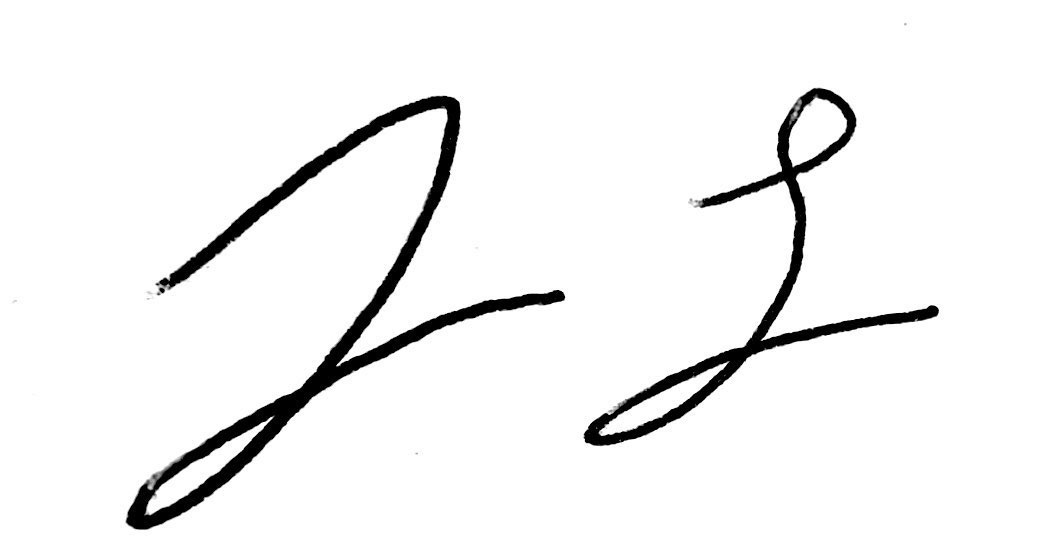Happy Monday, everyone. You’re reading The Collect, a weekly newsletter where I, the author, write about whatever happens to be on my mind, usually related to the Catholic Church and the Catholic Liturgy but just as often not. Don’t forget that you can always check out any posts you’ve missed by visiting my website.
Today, I’ve got a special meditation on our upcoming celebration of Ash Wednesday, taking place this year on February 14th, which is also the Memorial of S. Valentine (and Ss. Cyril and Methodius). I’m going to try something a bit new for those of you who have read my previous posts — first, I’ll do the ‘normal’ intellectual breakdown and reflection on Ash Wednesday, but then I’d like to do a more spiritual reflection. Of course, this being me, the spiritual reflection will probably still have significant intellectual portions, but I imagine that’s not a surprise to anyone.
Anyway, let’s dive into the most popular ferial day of the year.
(N.B. As usual, I’d like to remind everyone right here that I am a Catholic, and that I necessarily write from a Catholic perspective. If I say anything that you think is weird or want to know more about, leave a comment or send me an email!)
What is Ash Wednesday?
If you’re not Catholic, you may only have a vague idea of what Ash Wednesday is, and if you are Catholic, you may not be great at explaining it, so I’m going to try to get two birds with one stone, as they say, with this brief(ish) introduction.
In Scripture, covering the head with ashes is shown to be a sign of grief and/or repentance (Num. 19:9, Jonah 3:6, Esther 4:1, 2 Sam. 13:19, Jer. 6:26, Dan. 9:3, 1 Macc. 3:47, to name a few). The Lord speaks of it as well in the Gospels, most notably in Luke chapter 10, verse 13:
Woe to you, Chorazin! Woe to you, Bethsaida! for if the mighty works done in you had been done in Tyre and Sidon, they would have repented long ago, sitting in sackcloth and ashes.
So even in the time of Christ, the idea of wearing ashes carried the connotation of repentance.
In the early Church, repentance was a rather big deal, especially in the early centuries of Christian freedom, after Constantine legalized the faith. The Church was faced quite quickly with the question of what to do with those people who had denied Christ in the face of Roman persecution, and now wanted to return to the faith. The decision, codified at the Council of Nicaea in 325 AD, was that these lapsi would be dealt with mercifully, that they should do penance, and only after that would they be readmitted to the sacraments. Of course, penance was nothing to scoff at — the Fathers of the Council didn’t want to make people devalue membership in the Church — and could sometimes take actual years to complete, but that was a whole lot better than spending eternity in hell for recanting the faith.
Eusebius tells us that one of these men, during the pontificate of S. Zephyrinus (198-217) covered himself in ashes while begging the Pope for readmittance to Holy Communion,1 so we know that the idea of ashes being penitential stuck around outside of the near East.
Also in the early Church, potentially as early as Apostolic times and definitely present by Nicaea, the season of Lent (or Quadragesima, Latin for ‘forty’) took shape as a period of fasting before the celebrations of Easter. Over the course of the next centuries, various bishops and popes made adjustments to Lent, with some advocating for more or less fasting (one sacramentary records a seventy day fast rather than forty, while another aims to fit all of Lent into Holy Week alone) but by the turn of the second millennium Lent was solidly established as a forty-day period before Easter characterized by fasting, almsgiving, and prayer.
Now, when counting days of Lent, the Church determined that Sundays don’t count (more on that in a future post) and so the actual number of days before Easter Sunday that Lent needs to start is 46, which always lands on a Wednesday (usually in late February or early March). That day became known as Feria Quarta Cinerum or “Wednesday of the Ashes.” By the late 8th century Gregorian Sacramentary, the practice of sprinkling ashes on the head to mark the start of Lent was already recorded, accompanied with the words “Remember man that thou art dust and to dust thou shalt return” or something like that. Today, many priests will impose ashes with the words “Repent and believe in the Gospel.”
Ashes on the head, to go back to our Scriptural evidence, demonstrates a spirit of grief and repentance, which also characterizes the season of Lent. During Lent, which is also a spiritual reiteration of the forty years in the desert of the People of Israel and the forty days of fasting that Jesus did before beginning his public ministry, we are invited to examine our lives and prepare for Easter so that we may better enter into the joy of the Resurrection anew.
Wait a second…
Okay, let me address the elephant in the room.
And when you fast, do not look dismal, like the hypocrites, for they disfigure their faces that their fasting may be seen by men. Truly, I say to you, they have their reward. But when you fast, anoint your head and wash your face, that your fasting may not be seen by men but by your Father who is in secret; and your Father who sees in secret will reward you.
(Matthew 6:16-18)
“Mr. Link,” you say. “Isn’t wearing ashes on our foreheads a contradiction of the literal words of Christ in the sixth chapter of Matthew’s gospel?”
So, I’m a liturgist and not a Biblical Scholar, but let me point out two things:
Matthew Chapter 6 occurs after Matthew Chapter 5 and before Matthew Chapter 7, which means it is part of a passage called the “Sermon on the Mount.” During the Sermon on the Mount, Christ greatly enjoys employing the literary device of hyperbole. See Matthew 5:21-22 and Matthew 7:9-10 for examples.
There is a large difference between wearing an ash cross on your forehead and “disfiguring your face that your fasting may be seen.”
Ashes on the forehead are, at their core, a public display of humility and a confession that, yes, I need a savior. Can they be turned into Pharisaical marks of pride? Absolutely. Are they inherently? Absolutely not.
So do I need to go to Mass today?
Well, actually, no.
I mentioned above that this Wednesday is the most popular ferial day of the year. Technically, that’s not true — if it were, then we would actually celebrate the Memorial of S. Valentine over it — but the point I was trying to make is that it’s not a Holy Day of Obligation, or even a Solemnity/Feast/Memorial. Ash Wednesday is it’s own thing, that has precedence over everything else but doesn’t actually require Catholics to attend Mass. If you do attend Mass, you’ll notice there’s no Creed (which is never required on weekdays but always said on Sundays and Holy Days).
Yet, as I said, it’s the most popular day of the year. More people attend Masses on Ash Wednesday than do on Christmas or Easter.2 When I was in college, we had a priest distributing ashes all day on campus (at my secular, non-religious school) and he frequently told stories at Mass that night about Protestant and even non-Christian students who were eager to “get their ashes.”
So what’s going on? Why is this thing, a sacramental but not a Sacrament and not even an obligation, so overwhelmingly popular among Catholics and non-Catholics alike?
Perhaps we all have a little something inside of us reminding us that we do need to be humbled. Perhaps somewhere, deep down, we do know that we need a savior. Ash Wednesday is where we are able to face that truth and receive confirmation from an authority (the Church) that we’re not crazy, and we’re not alone.
Oremus
Alright, I’ve already gone well over a thousand words, so I’ll go ahead and wrap up. As I mentioned above, I’d like to close with prayer. Whenever I have the time, I try to pray using the method of S. Francis de Sales, my patron, which he outlines in his masterwork The Introduction to the Devout Life. Like so many other spiritual classics, it can be found for free online or wherever books are sold. If you have or obtain a copy, the advice for prayer is found in Part II. I’ll be quoting some parts of it in italics at the beginning of each section.
I’ll try to write this out in a way that you can follow, but as usual if anything seems out of place or you have questions, just let me know with a comment or email.
The Presence of God
First, a lively earnest realisation that His Presence is universal; that is to say, that He is everywhere, and in all, and that there is no place, nothing in the world, devoid of His Most Holy Presence, so that, even as birds on the wing meet the air continually, we, let us go where we will, meet with that Presence always and everywhere.
Truly you are present here, Lord my God. Make me aware of your Presence.
Invocation
Invocation is made as follows: your soul, having realised God’s Presence, will prostrate itself with the utmost reverence, acknowledging its unworthiness to abide before His Sovereign Majesty; and yet knowing that He of His Goodness would have you come to Him, you must ask of Him grace to serve and worship Him in this your meditation.
In the name of the Father, and of the Son, and of the Holy Spirit.
O Heavenly King! Avenging Lord! You are just, O God, the only just one; and though I know this for truth yet I so often forget. Show me my own imperfections, Lord, that I may better come to know your perfection; show me my misery that I may better receive your mercy.
Considerations
Meditations, properly so called, are certain considerations by which we raise the affections to God and heavenly things... if your mind finds sufficient matter, light and fruit wherein to rest in any one consideration, dwell upon it, even as the bee, which hovers over one flower so long as it affords honey. But if you do not find wherewith to feed your mind, after a certain reasonable effort, then go on to another consideration, — only be quiet and simple, and do not be eager or hurried.
Truly I am dust, O Lord; shaped from dust and destined to return to dust. There is nothing good in me except what comes from you, and nothing of worth except what you have bestowed.
Repent! I am not even worthy of repentance, Lord; for truly it would be accounted justice if I was condemned and passed even into non-existence, so gravely have I sinned against you, so much for granted I have taken your love.
To turn from my evil ways, you have offered me time and again your infinite mercy; yet even in the face of such a marvelous gift, how often have I turned from you! No, truly I am the least worthy to receive forgiveness; and I deserve nothing but ashes and dust, for such am I.
Affections and Resolutions
Meditation excites good desires in the will... and in all such affections you should pour out your soul as much as possible. But you must not stop short in general affections, without turning them into special resolutions for your own correction and amendment.
But behold! Still you offer me mercy; for there is yet time to repent, yet a season to amend my ways by fasting, prayer, and giving alms. Though I know (as do you, my God!) that I am supremely unworthy of such grace, still I receive it, your great gift of mercy, of repentance.
This Lent, then, Lord, I will turn back to do the right before you; I ask only — and truly I have no right to ask anything at all! — for the grace to see my resolutions through, for it is only through you that I can do anything at all.
This Lent, I will (mention specific resolutions here).
Conclusion and Spiritual Bouquet
The meditation should be concluded by three acts, made with the utmost humility. First, an act of thanksgiving... secondly, an act of oblation, by which you offer your affections and resolutions to God... the third act is one of petition, in which you ask God to give you a blessing on your affections and resolutions, to the end that you may be able to put them in practice. Besides all this, I bade you gather a little bouquet of devotion, and what I mean is this. When walking in a beautiful garden most people are wont to gather a few flowers as they go, which they keep, and enjoy their scent during the day. So, when the mind explores some mystery in meditation, it is well to pick out one or more points that have specially arrested the attention, and are most likely to be helpful to you through the day.
What amazing grace you have already shown to me, O Lord — and here I beg for more! For without your grace I am naught; I am because you are, but if I was not you still would be. Give me your grace, then, that I may holy to my resolutions and render you fitting honor, glory, and praise.
Make me know my misery to know your mercy.
Our Father... Hail Mary... Glory be...
Thanks as always for reading! If you have feedback or thoughts (even angry ones), you can use the button below to leave a comment, or send me an email at thecollect @ substack.com.
May you all have a Blessed Lent.
Church History V.28:12 if you’re curious.
I couldn’t find any actual statistics for this, but it’s absolutely been my experience and that of Rev. Arne Panula, who talks about it in this article.







This is very interesting. My understanding is that Easter and the Jewish passover are intertwined so it makes sense that once the date for Easter was fixed, Lent would spring up (pun intended).
That makes a lot of sense: reconciling what Jesus said about fasting and the practice of ashes had bugged me for a minute. Not that it stopped me from converting, mind you; it was something I figured I could look up or study more about later. :)